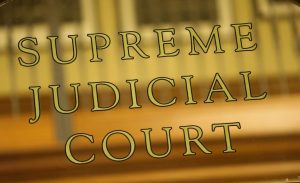
Editorial: Boston is the safest big city for a reason!
“No legacy is so rich as honesty.”
This timeless quote from William Shakespeare. (Act. 3, Scene 5 of “All’s Well That Ends Well“) rings true still today. The passage related to a woman’s honor, but we’re applying it to Boston.
This week, the Economist’s cover story reports on “How Boston became the safest big city in America.” It’s what the Herald has been reporting all along.
It’s politically disingenuous to ignore that this city is safer than any other metropolis in the U.S.
All the calls to cut the police department is a far-left attempt to play to the crowd. It’s dishonest. Sure, seek reforms and punish overtime abusers, but the city is not served by knee-jerk policies that only get tone-deaf politicians elected again.
“The Economist story is a testament to what common-sense people have said for years,” said the Rev. Gene Rivers, the esteemed magazine calls an anti-violence activist. He’s more than that. He’s a leader in the push for more police in the neighborhoods.
“Boston is unique,” he said in a call early Monday morning to share the Economist’s headline. “All the anti-police rhetoric failed.”
There’s a nearly 15% drop in homicides in the city year-over-year, according to the latest BPD statistics posted Sept. 1. Even one murder is too many, but all the reason to keep officers on the beat.
“Beantown is on track to become the safest big city in America this year,” the Economist writes. Yes, we cringed at the use of beans to describe Boston. But the Brits only know the facts on the ground.
Rape or attempted rape is down nearly 22% from last September, 138 to 108, BPD reports.
Firearm-related arrests are down 6.6%; fatal shootings are down 9%; non-fatal are negative 7%.
“Boston is worth looking at, precisely because it shows how safe American cities could be, and what it would take to achieve that,” the Economist adds.
So what gives?
The Rev. Rivers “was among those who started the weekly get-togethers between police and community groups, known as the ‘Baker House’ meetings,” the magazine says. They are right.
The Rev. Rivers is a tireless champion of trying every week to bring reality into the equation and back the blue while caring deeply for the Black community in the city. The Ella J. Baker House meetings have temporarily moved to the Charles Street A.M.E. Church on Warren Avenue in Roxbury. There’s another one on Wednesday.
What the Economist fails to address, however, is the attack on the city’s commitment to ShotSpotter.
The ShotSpotter system alerts police to virtually all gunfire in a community’s coverage area within 60 seconds, the company that makes the electronic warning system states. And that has helped police and saved lives.
But, here come the progressives.
Several city councilors have pointed to a report released by the American Civil Liberties Union, that, citing public records from the BPD, found that nearly 70% of ShotSpotter alerts resulted in no evidence of gunfire from 2020-22.
The ACLU further contended that the same city records showed the technology was mostly used in communities of color, particularly in Dorchester and Roxbury. But what’s wrong with thinking about the victims first?
This is the lesson of the Economist’s tale of life in Boston. We need to keep pushing back against the far left, which doesn’t seem to deal with honest facts.

